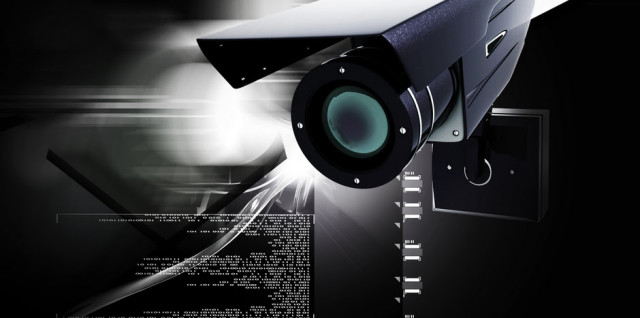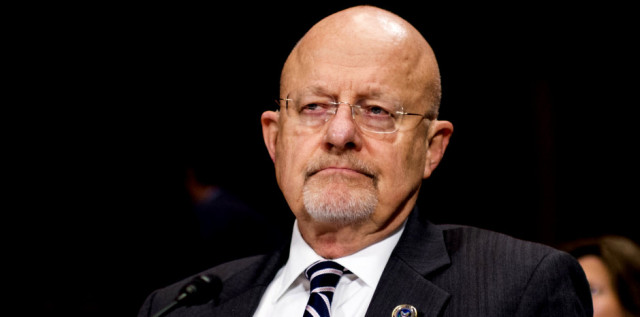‘Emerging Collusion’: Experts Warn of Expanding Warrantless Surveillance of Americans

A panel of experts, including famed author and psychologist Jordan Peterson, warned Congress on Thursday that potential collusion between federal law enforcement agencies and financial and other corporations could lead to unprecedented violations of the constitutional right of American citizens not to have private information handed over without proper warrants.
On Thursday, a hearing of the House Select Subcommittee on the Weaponization of the Federal Government was held to examine how citizens’ private financial data is being surveilled by the federal government. In the wake of incidents like what happened in January when a government agency colluded with banks to uncover gun and religious book purchases of citizens without a warrant, experts are concerned that the U.S. could be headed in the direction of surveillance states such as China.
“If the emerging collusion between government and gigantic corporations continues in the manner it is continuing, there won’t be anything that you do that can’t be used against you and will be used against you in very short order,” Peterson warned. “We are in danger of eliminating the private sphere in its entirety. It’s already happening in places around the world, particularly China. … We have technologies at hand, and it appears both giant corporations and giant governments are utilizing it in every way that they can manage.”
Congressmen like Rep. Warren Davidson (R-Ohio) are also worried about how surveillance laws already in place can potentially be abused by the government for political reasons, as he shared on “Washington Watch with Tony Perkins” Thursday.
“[The] Bank Secrecy Act is supposed to keep us safe,” he explained. “You use [it] to … catch terrorism, money laundering, illicit finance, tax evasion, things like that. So they do have sort of this loophole, though, because they implemented this in 1970, and it essentially circumvents the Fourth Amendment. … [I]f you remember back a couple of years ago, the Biden administration wanted to start surveilling your bank account for $600 of activity a year and share that directly with the IRS. I think what people are seeing now is they already surveil your accounts … with the rules they have in place. The question is, can they use it in court?”
Davidson, who serves on the House Financial Services Committee, went on to observe how other laws such as the Foreign Intelligence Surveillance Act (FISA) and agencies like the Financial Crimes Enforcement Network (FinCEN) were initially enshrined to protect Americans but are now being increasingly used to eavesdrop and spy on Americans without cause.
“[T]he Fourth Amendment’s there on purpose,” he emphasized. “And there’s a reason it’s the Foreign Intelligence Surveillance Act — foreigners aren’t protected by our Constitution the way American citizens are. … [Y]ou’re supposed to have to get a warrant or a subpoena to go after an American.”
Davidson continued, “They can’t just do this blanket [search] like, ‘Well, I don’t know who was in Washington, D.C. on this day. Well, who was here? Who was here?’ And they build the case from that end. They’ll literally say, ‘We’re querying the database,’ which is a synonym for searching. But they’ll say, ‘No, no, no, that’s very different, because once we go to search, we get a search warrant.’ So they’ll query the database, and they build the database. How does the data even get into the database? They do it [in] multiple ways. … [T]he Financial Crimes [Enforcement] Network will direct the banks to, basically, ‘Here’s how you spy on your customers better for us. And if you don’t do a good job, the regulators will come in and shut your bank down.’”
The congressman further shed light on how the FBI surveilled private data without a warrant surrounding the January 6, 2021 riot at the Capitol.
“[T]he whistleblower came forward because he worked in the Boston FBI office, and he said, ‘Hey, what I saw is we were targeting people that happened to be in Washington, D.C. on January 5th, 6th, and 7th,’ and then they started building from there, like who had a financial transaction on this date,” Davidson described. “And if they had financial transactions on this date, what other things did they buy? Did they use transactions in certain stores? And they started highlighting red flags like, ‘Oh, you might have gone to Cabela’s or Bass Pro, you might have purchased anything related to a firearm. You might have purchased religious material, including the Bible.”
Davidson concluded by outlining what congressional actions need to happen in order to help restore Americans’ Fourth Amendment rights against unwarranted searches and seizures.
“[W]e have to change the law fundamentally,” he stressed. “The Bank Secrecy Act is very flawed. … There’s court decisions related to that … [which could] effectively completely nullif[y] the Fourth Amendment right to privacy. … The Judiciary Committee, in a rare set of events, you had Jim Jordan [R-Ohio] and Jerry Nadler [D-N.Y.] agreeing that the government needs to get a warrant. … The intel community, on the other hand, is asking to expand the surveillance on Americans. They want to add Wi-Fi hotspots … to get at more expansive data, to add more things to the database. And those ideas deserve a debate, and they deserve a recorded vote. So we hope Speaker [Mike] Johnson will give us that vote very quickly.”
AUTHOR
Dan Hart
Dan Hart is senior editor at The Washington Stand.
RELATED ARTICE: Viktor Orbán Warns: ‘The Hegemony of the West has Ended, A New World Order is Emerging’
EDITORS NOTE: This Washington Stand column is republished with permission. All rights reserved. ©2024 Family Research Council.
The Washington Stand is Family Research Council’s outlet for news and commentary from a biblical worldview. The Washington Stand is based in Washington, D.C. and is published by FRC, whose mission is to advance faith, family, and freedom in public policy and the culture from a biblical worldview. We invite you to stand with us by partnering with FRC.



